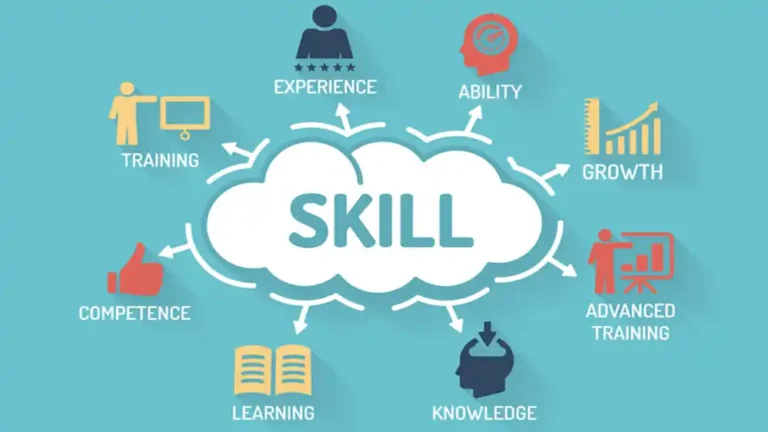How E-learning Platforms are Bridging the Youth Skills Gap: A Global Perspective

With a rapidly evolving job market, the global economy is facing a significant challenge: a growing skills gap, particularly among young people. As industries become more digitized and automated, traditional education systems often struggle to keep pace, leaving many youths without the necessary skills to thrive in today’s workforce. According to the World Economic Forum, by 2030, more than 1 billion people will need to be reskilled, with young workers being particularly vulnerable to these shifts.
E-learning platforms are emerging as an essential solution to this problem, offering (young adults entering the job market) young people around the world accessible and flexible opportunities to upskill and reskill, closing the skills gap and enhancing employability. Let’s explore how e-learning is addressing this issue and examine the global impact with relevant statistics.
Identifying the Youth Skills Gap
The skills gap among youth is not a localised issue—it’s a global phenomenon. In Europe, 16.5% of young people between 15 and 24 are neither in employment, education, nor training (NEET). One reason for this growing gap is the fast-paced evolution of industries, particularly those involving technology, automation, and artificial intelligence.
E-learning platforms and online high schools are stepping in to fill this gap by offering targeted skills training that aligns with industry demands. By enabling young learners to assess their skill levels through online assessments and personalized learning paths, platforms can pinpoint precisely where gaps exist and provide training tailored to these needs.
Global Reach and Accessibility of E-learning
One of the most powerful aspects of e-learning is its global accessibility. Platforms like Coursera, Udemy, and CanadianGrad Academy have made it possible for young people in even the most remote areas to access world-class education.
According to UNESCO, more than 1.6 billion learners were affected by school closures during the pandemic, and e-learning became a crucial resource for continuity in education.
In low-income regions, where access to higher education may be limited, e-learning platforms are particularly transformative. In fact, research shows that students who use online platforms to study are up to 50% more likely to gain employment after completing relevant courses.
Custom Learning Paths for Youth Development
Young people entering the workforce often have varying skill levels, making it difficult for traditional education systems to cater to individual needs. E-learning platforms offer a solution by creating customized learning paths based on individual assessments. Using tools like Learning Management Systems (LMS) and Learning Experience Platforms (LXP), educators and students can collaborate to identify gaps and set personalized learning goals.
For instance, Canadian Grad Academy allows students to create tailored learning journeys that focus on specific skills, through utilising the Wechsler Individual Achievement Test (WIAT), a powerful tool designed to assess and address the unique learning needs of every student. This ability to individualise learning has proven highly effective in youth development, leading to greater engagement and higher completion rates of their high school diploma.
Upskilling for Future-proof Careers
Reskilling and upskilling are crucial for preparing the youth for future careers. The World Economic Forum reports that 42% of core job skills are expected to change by 2025, which means that today’s youth must continuously update their skills to stay relevant. E-learning platforms make this possible by offering continuous learning opportunities.
Whether it’s through enrolling in additional courses such as computer science and English as a Second Language (ESL), young learners are not only acquiring valuable knowledge relevant to current employment opportunities but are also preparing for the jobs of tomorrow.
Skill-sharing and Collaboration
E-learning platforms also foster collaborative learning environments where young people can share skills and knowledge. Through online discussion forums, peer review systems, and group projects, learners can build essential teamwork and communication skills while learning from each other. This collaborative approach helps to create a sense of community, even in a digital environment, and enhances the overall learning experience.
Research shows that learners who engage in peer collaboration and skills-sharing activities retain information better and feel more empowered to apply their knowledge in real-world situations. As a result, they are better equipped to enter the workforce with the practical skills needed to succeed.
Reducing Global Youth Unemployment
The impact of e-learning on youth employment is becoming increasingly evident. As industries embrace digitization, the demand for technical skills continues to grow. E-learning platforms provide an affordable, scalable, and flexible way for young people to gain those skills, regardless of their geographical location. According to LinkedIn, 64% of L&D professionals believe reskilling the current workforce is critical, and e-learning is at the heart of these initiatives.
Conclusion: E-learning as a Catalyst for Closing the Skills Gap
As the global skills gap continues to widen, especially among youth, e-learning platforms are proving to be a powerful tool in bridging this divide. By offering accessible, personalized, and relevant learning opportunities, these platforms are empowering young people to develop the skills they need for a rapidly changing job market. With continued investment in e-learning and digital literacy programs, we can ensure that the youth of today are ready for the workforce of tomorrow.
What steps are you taking to stay updated on skills that are essential for the future workforce?
About CanadianGrad Academy
CanadianGrad Academy offers students worldwide the opportunity to earn a recognized high school diploma through a variety of flexible online courses. As a private online school accredited by the Ontario Ministry of Education, we provide equal pricing for all students and personalized learning plans, including WIAT-III assessments to address individual challenges. For more information about our comprehensive online high school programs, contact us at (647) 699-0369 or email [email protected].